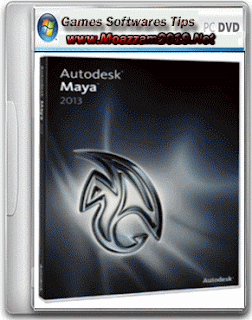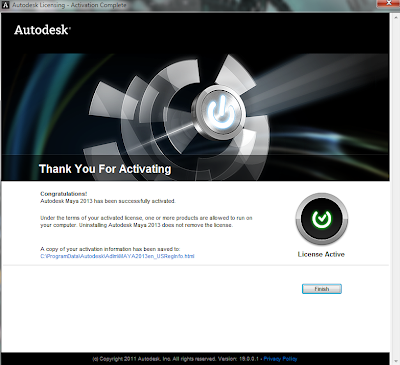
Autodesk® Maya® 2013 software delivers practical toolsets to help create and maintain the modern, open pipelines you need to address today’s challenging 3D animation, visual effects, game development, and post production projects. Powerful new toolsets for dynamic simulation, animation, and rendering offer new levels of creativity, while everyday productivity enhancements help you finish faster. In addition, the Open Data initiative introduced in Maya 2013 offers tools to help facilitate parallel workflows and better complexity handling..
- 3D Modeling
- 3D Animation
- Dynamics & Effects
- Rendering & Imagine
- Pipeline Integration
Maya nHair
Create stunning, highly realistic hair and other curve-based dynamics with the new Maya® nHair module for the Maya® Nucleus unified simulation framework.
|
Viewport 2.0 EnhancementsEvaluate your work in a higher fidelity interactive environment in order to make better creative decisions. Viewport 2.0 now offers a more functionally complete high-performance, high-quality viewport, featuring:
|
New Node EditorCreate, edit, and debug node networks more easily with the new Node Editor.
|
Bullet PhysicsSimulate both soft and rigid bodies in a single system, with the high-performance, open source AMD Bullet Physics engine.
*Available on Microsoft® Windows® (64-bit only), Linux®, and Mac OS® X operating systems; OpenCL acceleration on Windows and Linux offers additional performance benefits on those platforms.
|
Heat Map SkinningEnjoy a more accurate initial binding of geometry to skeletons in Maya 2013, thanks to a new Heat Map Skinning method that:
|
Trax Clip MatchingVisualize how Trax clips overlap in Maya 2013 to build complete character performances from individual animations.
|
Alembic Caching
Read and write the Alembic open source computer graphics interchange framework format, initially developed in 2010 by teams from Sony Pictures Imageworks andIndustrial Light & Magic, a division of Lucasfilm Entertainment Company Ltd.
|
ATOM Animation TransferTransfer animation between characters via the new ATOM (Animation Transfer Object Model) offline file format, in order to repurpose existing animation data as new characters are created.
|
File Referencing Workflow EnhancementsMore easily segment scenes to work in parallel and better manage complexity, thanks to targeted improvements to both the user interface and the underlying architecture for file referencing.
|
Graph Editor EnhancementsEnhancements to the Graph Editor include a new interactive Retime tool and a stepped preview mode for pose-to-pose animation.
|
HumanIK Enhancements
|
A number of enhancements to the HumanIK® feature set help animators more easily take advantage of its powerful bipedal character rigging and animation tools:
The ability to map and retarget HumanIK animation to and from a custom rigged character
A unified character context for increased usability
Character views that can be customized to fit specific requirements
Continuous rig alignment during manipulation and playback
Greater control over Roll Bone influences..

Note: Read Provided Instructions Before Installation..

Post a Comment